Jonathan Carter: MiniDebConf Germany 2023

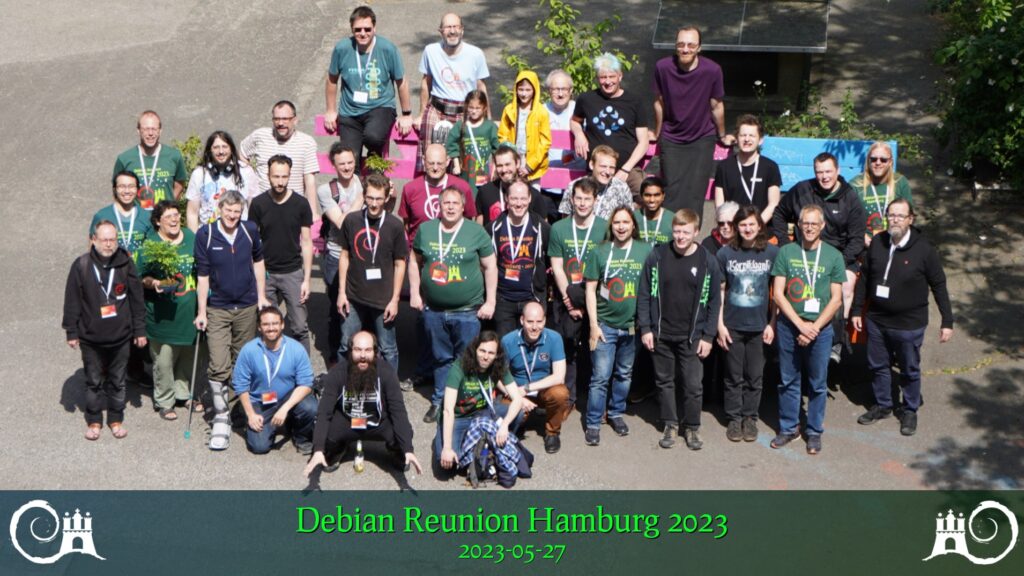
- Arrived much later than planned after about 18h of travel, went to bed early.
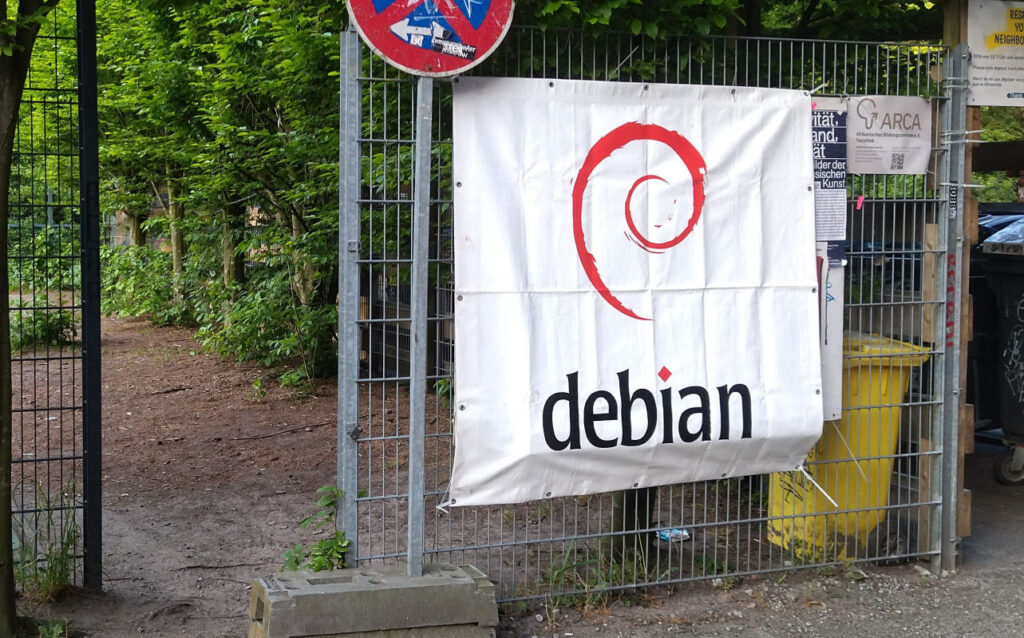
- Was in a discussion about individual package maintainership.
- Was in a discussion about the nature of Technical Committee.
- Co-signed a copy of The Debian System book along with the other DDs
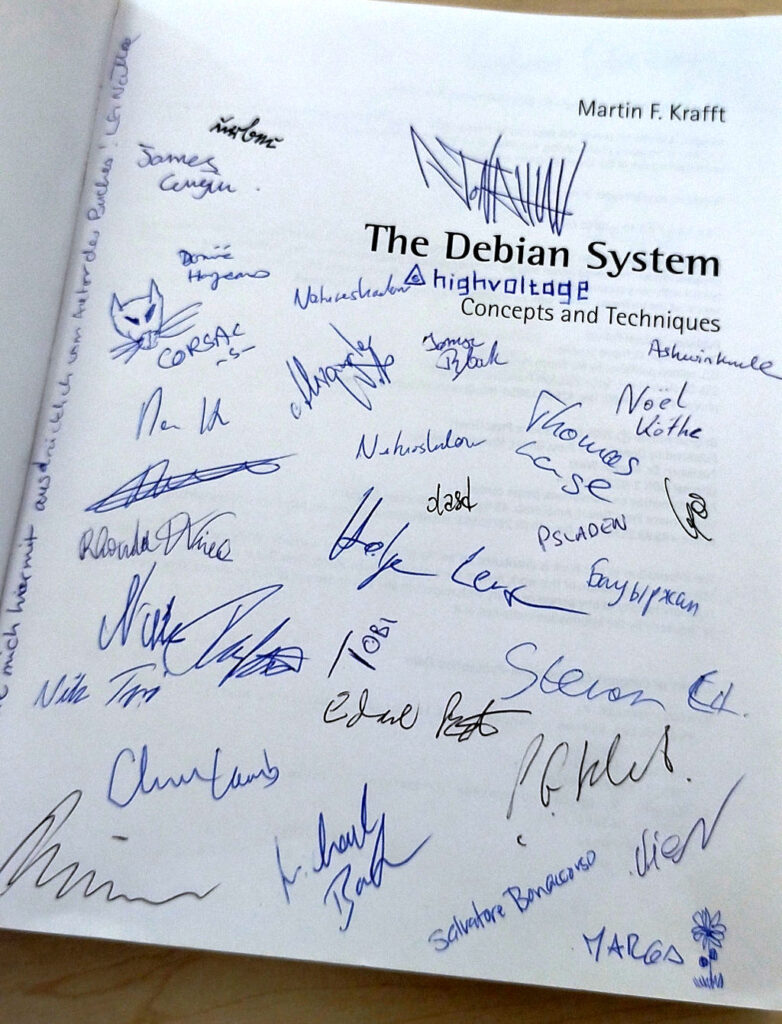
- Submitted a BoF request for people who are present to bring issues to the attention of the DPL (and to others who are around).
- Noticed I still had a blog entry draft about this event last year, and posted it just to get it done.
- Had a stand-up meeting, was nice to see what everyone was working on.
- Had some event budgeting discussions with Holger.
- Worked a bit on a talk I haven t submitted yet called Current events (it s slightly punny, get it?) it s still very raw but I m passively working on it just in case we need a backup talk over the weekend.
- Had a discussion over lunch with someone who runs their HPC on Debian and learned about Octopus and Pac.
- TIL (from #debian-python) about pyproject.toml (https://pip.pypa.io/en/stable/reference/build-system/pyproject-toml/)
- Was in a discussion about amd64 build times on our buildds and referred them to DSA. I also e-mailed DSA to ask them if there s anything we can do to improve build times (since it affects both productivity and motivation).
- Did some premium cola tasting with andrewsh
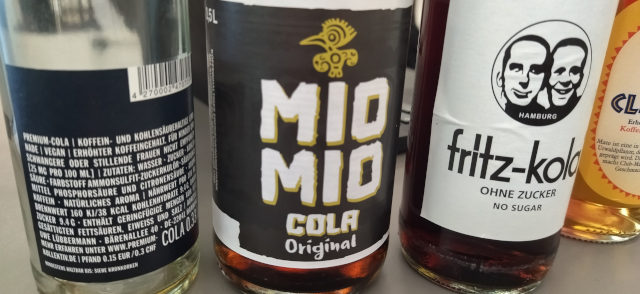
- Had a discussion with Ilu about installers (and luks2 issues in Calamares), accessibility and organisational stuff.
- Spent quite a chunk of the morning in a usrmerge BoF. I m very impressed by the amount of reading and research the people in the BoF did and gathering all the facts/data, it seems that there is now a way forward that will fix usrmerge in Debian in a way that could work for everyone, an extensive summary/proposal will be posted to debian-devel as soon as possible.
- Mind was in zombie mode. So I did something easy and upgraded the host running this blog and a few other hosts to bookworm to see what would break.
- Cheese and wine party, which resulted in a mao party that ran waaaay too late.
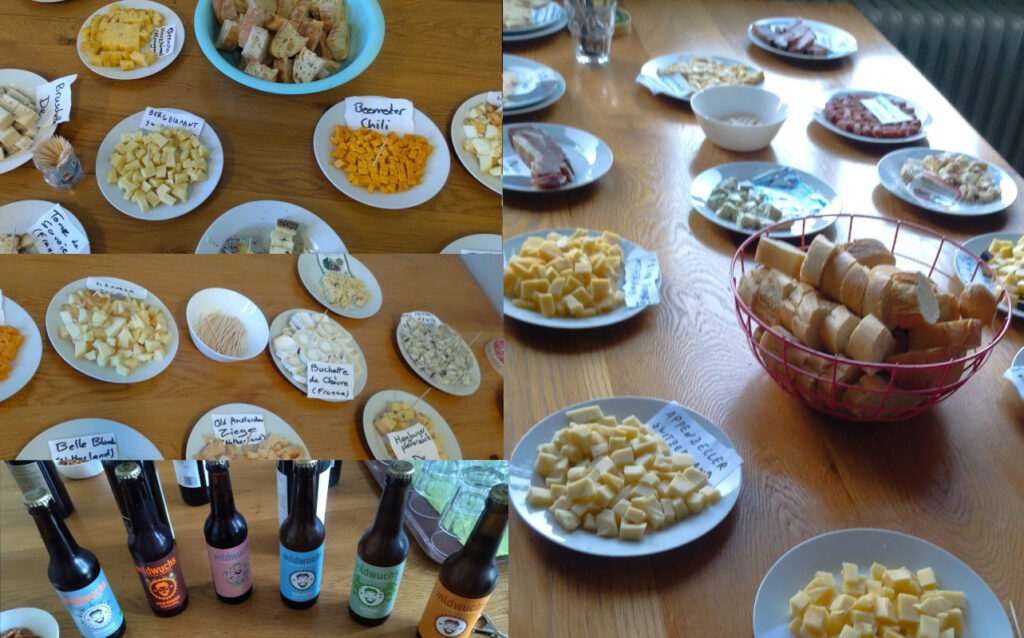
- Daytrip
- Was very saddened to learn that the Metallica concert in Hamburg that day was not a daytrip option.
- The Museum der Arbeit had lots of interesting machinery and history, there s also a giant drill bit outside it that was used to create the elb tunnels in Hamburg, we had a really nice dinner at a restaurant named after it.

- Attended talks:
- HTTP all the things The rocky path from the basement into the cloud
- Running Debian on a Smartphone
- debvm Ephemeral Virtual Debian Machines
- Network Configuration on Debian Systems
- Discussing changes to the Debian key package definition
- Meet the Release Team
- Towards collective decision-making and maintenance in the Debian base system
- Performed some PGP key signing.
- Edited group photo.
- Had a BoF where we had an open discussion about things on our collective minds (Debian Therapy Session).
- Had a session on upcoming legislature in the EU (like CRA).
- Some web statistics with MrFai.
- Talked to Marc Haber about a DebConf bid for Heidelberg for DebConf 25.
- Closing session.
- Started the morning with Helmut and Jochen convincing me switch from cowbuilder to sbuild (I m tentatively sold, the huge new plus is that you don t need schroot anymore, which trashed two of my systems in the past and effectively made sbuild a no-go for me until now).
- Dealt with more laptop hardware failures, removing a stick of RAM seems to have solved that for now!
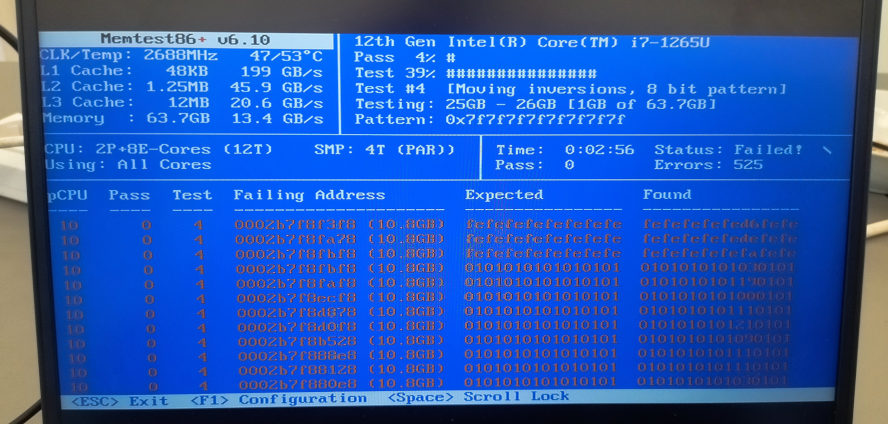
Das is nicht gut.
- Dealt with some delegation issues for release team and publicity team.
- Attended my last stand-up meeting.
- Wrapped things up, blogged about the event. Probably forgot to list dozens of things in this blog entry. It is fine.
- Didn t attend the last day, basically a travel day for me.
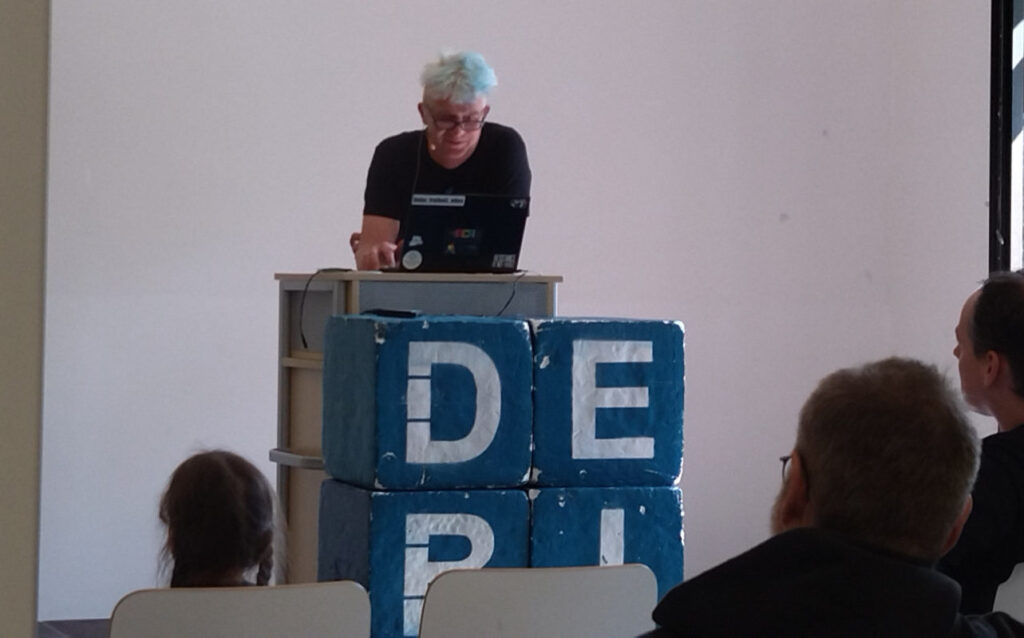
Thank you to Holger for organising this event yet again!





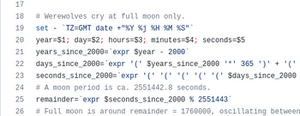






 What happened in the
What happened in the  eysler.debian.org is now DSAed, online and building packages (including
autosigning). I will shutdown monteverdi.ayous.org which is still at my
place in the next days, reinstall the system and send it to Darmstadt as
another buildd for data center hosting there. After that happens all mipsel
buildds are DSAed as it should be, and are running in a data center and not
via some DSL line.
(In case you're looking for hardware at your place, there are a couple of
loongson 2f-systems available to buy. 2f is the successor cpu of 2e. Some
2f systems get delivered with Debian installed on it, see e.g.
eysler.debian.org is now DSAed, online and building packages (including
autosigning). I will shutdown monteverdi.ayous.org which is still at my
place in the next days, reinstall the system and send it to Darmstadt as
another buildd for data center hosting there. After that happens all mipsel
buildds are DSAed as it should be, and are running in a data center and not
via some DSL line.
(In case you're looking for hardware at your place, there are a couple of
loongson 2f-systems available to buy. 2f is the successor cpu of 2e. Some
2f systems get delivered with Debian installed on it, see e.g.
 (This is partly a repost of material I've posted to bug reports and to debian-release, put together with some more detail for a wider audience.)
You could be forgiven for looking at the RC bug activity on
(This is partly a repost of material I've posted to bug reports and to debian-release, put together with some more detail for a wider audience.)
You could be forgiven for looking at the RC bug activity on 
 Now that
Now that